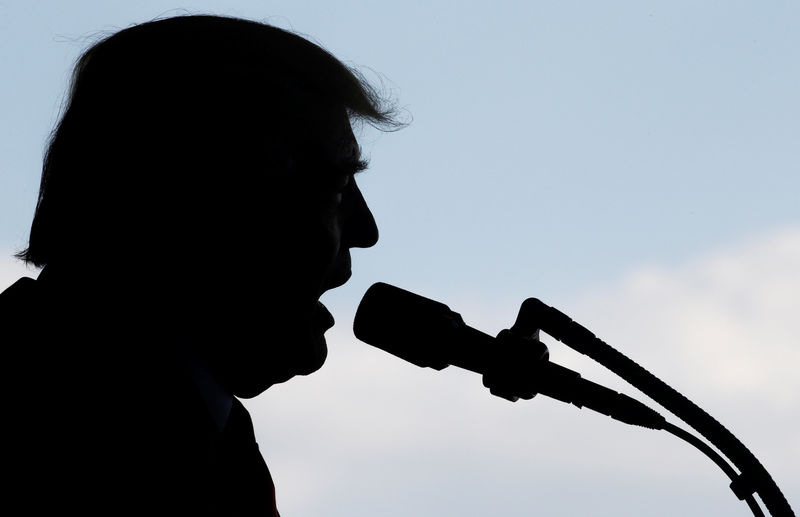By Jeff Mason
WASHINGTON (Reuters) - U.S. President Donald Trump's communications director is leaving the job, the White House said on Tuesday, as the president considers wider staff changes to try to contain political damage from investigations into Russia and his presidential campaign.
Mike Dubke confirmed reports he had resigned, saying in a statement, "It has been my great honor to serve President Trump and this administration." Dubke, who had been in the job just three months, gave no reason for leaving.
Trump, who returned to Washington on Saturday after a nine-day trip to the Middle East and Europe, has been expected to shake up staff to tackle the firestorm over investigations into alleged Russian meddling in the 2016 presidential election and communication between Russia and Trump's campaign and transition team.
Trump plans to bring in new aides to the White House, adding experienced political professionals including a former campaign manager, according to administration officials and people close to the president.
Dubke, who was joined the White House in March to head the office that runs press and other public relations issues, oversees the White House's message strategy while spokesman Sean Spicer, a more high-profile figure, handles daily media briefings.
The Republican president came home to face more questions on Russia after media reports about communications during and after the campaign between his son-in-law and close adviser, Jared Kushner, and Russia's ambassador to Washington.
Spicer was asked on Tuesday whether Trump knew about reported efforts by Kushner in December to set up a back channel for communications with Russia.
"What your question assumes is a lot of facts that are not substantiated by anything but anonymous sources that are so far being leaked out,” he told a news briefing.
MORE CHANGES?
Asked about a possible staff shake-up, Spicer said: "I think the president is very pleased with his team and he has a robust agenda."
Dubke resigned just before Trump left on his foreign trip but will stay on until a transition is concluded, Reince Priebus, the White House chief of staff, said.
Other potential staff changes could be in the works, according to Axios News, which first reported Dubke's departure, including fewer on-camera news briefings by Spicer, the White House press secretary.
Trump also will take more questions directly from the media, Axios reported.
"Ultimately the best messenger is the president himself," Spicer said on Tuesday.
Senior adviser Kellyanne Conway told Fox News the White House will continue to bring in Cabinet secretaries and other top officials to handle news briefings on topics in their patch.
Conway also dismissed persistent speculation that Spicer, who has been pilloried on TV comedy shows since Trump took office on Jan. 20, was on his way out.
Controversy over the Russia issue deepened after Trump fired FBI Director James Comey earlier this month, leading to allegations by critics that the president sought to hamper the agency's investigation of the matter.
Moscow has denied U.S. intelligence agencies' conclusion that it meddled in the campaign to try to tilt the election in Trump's favor.
The president has denied any collusion, repeatedly denouncing the probes by a special counsel at the Justice Department, the FBI and several congressional panels as a Democrat-backed effort to explain Hillary Clinton's upset defeat in the White House race.
Congressional investigations into the Russia issue have expanded to include Trump's personal attorney, Michael Cohen, ABC News reported on Tuesday.
Cohen confirmed he had been asked to provide information and testimony to investigators in the U.S. House of Representatives and the Senate but said he declined because "the request was poorly phrased, overly broad and not capable of being answered," ABC reported.
Cohen did not respond to Reuters' request to comment. The White House declined to comment, saying Cohen is not an employee of the administration.

However, former White House national security adviser Michael Flynn, who resigned after failing to properly disclose his own contacts with Russian officials, told the Senate Intelligence Committee he will begin turning over some documents subpoenaed by the panel, a government source familiar with the matter told Reuters.